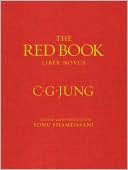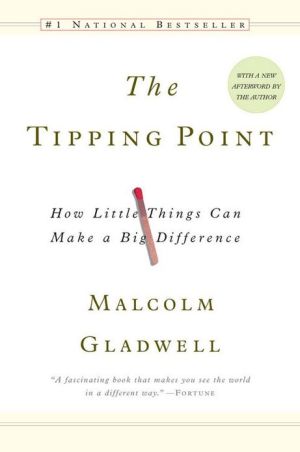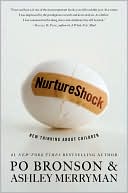Woman's Inhumanity to Woman
“Man’s inhumanity to man”--the phrase is all too familiar. But until Phyllis Chesler's now-classic book, a profound silence prevailed about woman’s inhumanity to woman. Women's aggression may not take the same form as men's, but girls and women are indeed aggressive, often indirectly and mainly toward one another. They judge harshly, hold grudges, gossip, exclude, and disconnect from other women. \ Like men, women are...
Search in google:
Why do contemporary women often have such a hard time getting along with each other, at work, and within the family? Why is female friendship so important to women, despite the prevalence of female betrayals? How does the mother-daughter relationship impede women’s growth? This book—destined to be a controversial classic—draws on recent biological, psychological, and anthropological research, as well as hundreds of original interviews, to redress the complicated silence that has prevailed about woman’s inhumanity to woman. While women may not be aggressive in the same way that men are, cross-cultural studies confirm that girls and women are equally aggressive in “indirect” ways, and mainly toward each other. Women envy and compete against other women, not against men—and tend to deny this, even to themselves. Like men, many women also hold sexist beliefs; often, they are unaware of it. Women depend upon each other for emotional intimacy and bonding, but their power to form cliques, gossip about, and shun one another enforces conformity and discourages self-confidence and psychological clarity from girlhood on. Are women oppressed? Yes. Do oppressed people internalize the oppressor’s attitudes? Without a doubt. Women, therefore, must acknowledge their own sexism and gender double-standards before they can practice sisterhood, resist sexism, treat other women ethically, and forge realistic and compassionate personal and political coalitions. “Chesler’s work is our public conscience.”—Letty Cottoin Pogrebin Publishers Weekly Chesler, author of the bestselling Woman and Madness, explores the "shadow side" of sisterhood: women treating each other badly. How could her own mother have been so mean to her? How could someone who "borrowed" published ideas from her not acknowledge her or say "thank you"? In this treatise on breaking the "cycle of cruelty" between women, controversial feminist Chesler addresses why sisters fight, why some women prefer to work for men rather than for women, and other highly subjective cases of woman/woman cruelty. From the "demented Demeters" and "murderous Electras" of Greek mythology to modern-day Mommie Dearest, Chesler warns, mothers and daughters are doomed. Whether they acknowledge their mothers' viciousness, as Chesler does, or whether they're "unconscious" and suffer "amnesia" about the hurt, she says, the patterns are set. Throughout girlhood and into adult life, women repeat the basic lesson in Chesler's words, "maternal envy teaches daughters to be passive, fearful, conformist, obedient as well as similarly cruel to other women." Thus, she says, "an assertive woman manager might be viewed as bitchy and non-maternal." This comment is certainly more digestible than, say, "what complicates the aging process is a woman's life-long experience of all other women as rivals and potential replacements." Chesler draws her evidence from interviews with an unspecified group of women with horror stories: backstabbing by feminist colleagues, sadistic gynecologists, battering lesbians, etc. Needless to say, her book sometimes comes off as quite cynical, despite her claim that "I would like women to treat each other in good ways." (Mar.) Forecast: It's prickly and contentious, but it's Chesler so expect some buzz in the academic feminist circles she inhabits. Copyright 2001 Cahners Business Information.
Introduction11The Animal Within: The Female of the Species352Indirect Aggression Among Girls and Teenagers783Woman's Sexism1244The Mother-Daughter Relationship in Fairy Tale, Myth, and Greek Tragedy1675Some Psychoanalytic Views of the Mother-Daughter Relationship2066The "Good Enough" Mother and Her Persecution of the "Good Enough" Daughter2397Sisters and the Search for Best Friends2888Women in the Workplace3359Women in Groups39010Psychological Ethics436Endnotes492References503Index537About the Author552
\ Publishers WeeklyChesler, author of the bestselling Woman and Madness, explores the "shadow side" of sisterhood: women treating each other badly. How could her own mother have been so mean to her? How could someone who "borrowed" published ideas from her not acknowledge her or say "thank you"? In this treatise on breaking the "cycle of cruelty" between women, controversial feminist Chesler addresses why sisters fight, why some women prefer to work for men rather than for women, and other highly subjective cases of woman/woman cruelty. From the "demented Demeters" and "murderous Electras" of Greek mythology to modern-day Mommie Dearest, Chesler warns, mothers and daughters are doomed. Whether they acknowledge their mothers' viciousness, as Chesler does, or whether they're "unconscious" and suffer "amnesia" about the hurt, she says, the patterns are set. Throughout girlhood and into adult life, women repeat the basic lesson in Chesler's words, "maternal envy teaches daughters to be passive, fearful, conformist, obedient as well as similarly cruel to other women." Thus, she says, "an assertive woman manager might be viewed as bitchy and non-maternal." This comment is certainly more digestible than, say, "what complicates the aging process is a woman's life-long experience of all other women as rivals and potential replacements." Chesler draws her evidence from interviews with an unspecified group of women with horror stories: backstabbing by feminist colleagues, sadistic gynecologists, battering lesbians, etc. Needless to say, her book sometimes comes off as quite cynical, despite her claim that "I would like women to treat each other in good ways." (Mar.) Forecast: It's prickly and contentious, but it's Chesler so expect some buzz in the academic feminist circles she inhabits. Copyright 2001 Cahners Business Information.\ \ \ \ \ Library JournalSecond Wave feminists have for 30-plus years operated under the assumption that sisterhood is powerful. Indeed, women acting in concert have forced society to redefine gender, domestic relations, and the workplace. Still, despite huge gains in public visibility, female ascendance has been hampered by a rarely acknowledged reality: women often betray, hurt, and humiliate one another. Mothers stymie daughters, biological sisters compete, girlfriends gossip maliciously, and women bosses exert arbitrary and capricious authority. Chesler (Women and Madness, etc.) has been studying this phenomenon for 21 years, and her research is fascinating, resonant, and unsettling. While the book focuses on psychological rather than political factors and pays too little attention to race and class, it is nonetheless a groundbreaking look at how women perpetuate oppression. Anthropological, biological, literary, and sociological theories are also tapped, giving the book added heft. Although the text is somewhat repetitious and self-congratulatory, it is highly recommended for all public and academic libraries. Eleanor J. Bader, Brooklyn, NY Copyright 2002 Cahners Business Information.\ \ \ Kirkus Reviews"Women are sexists too" is the not-very-surprising thesis of this reference-packed tome from psychologist, feminist, and author Chesler (Letters to a Young Feminist, 1998, etc.). While male crimes against women tend to be direct and violent, the introduction notes, the wrongs women inflict on other women are more indirect but can also have tragic consequences. The female style of aggression is examined first in primates, whose favored strategy is sabotage of the reproductive cycle, and then in humans, who use gossip and shunning as weapons of choice. Chesler examines those tactics at length in chapters on the behavior of young girls and teenagers, whose primary motive for punitive behavior is the desire to become intimate and bond with other girls, and of adult women, who are competing for men and their resources. Also under the glass are mother/daughter relationships in myth and reality, including Chesler's conflicts with her own mother, who "never had a kind word to say to me," and with her "intellectual daughters," some of whom betrayed her. A look at women at work and in volunteer groups offers an intriguing analysis of women-only enterprises, which may not be as gratifying as they appear from the outside. The splintering of the feminist movement in the 1970s is discussed from a first-person perspective, and the narrative closes with some advice on how women can stop undermining each other. Although this often seems a vehicle for Chesler to vent her personal injuries, she has done her homework, digging into psychology, anthropology, law, primatology, economics, and feminist studies, as well as drawing on her own case studies and a series of interviews conducted specifically for thisbook. There are footnotes and references for each chapter. The material is familiar, but feminists and sexists alike should find the package challenging.\ \








